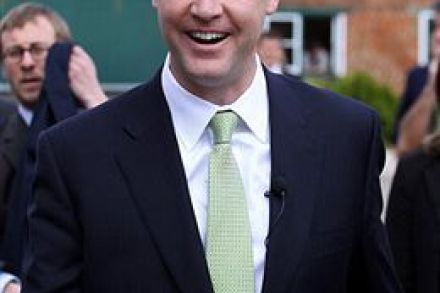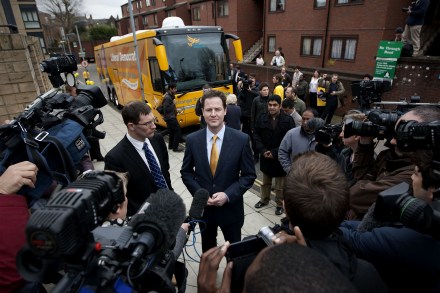Brown, behind the scenes
A neat election-time spot from the Guardian’s Haroon Siddique, who brings us the above photo of Brown’s speaking notes from the TV debate last night. Turns out – surprise, surprise – that the “two boys squabbling” line was prepared in advance. As were a few other clunkers that we thankfully didn’t hear. I mean: “You can phone a friend, you can ask the audience, you can go 50-50 with Nick.” Really?
















